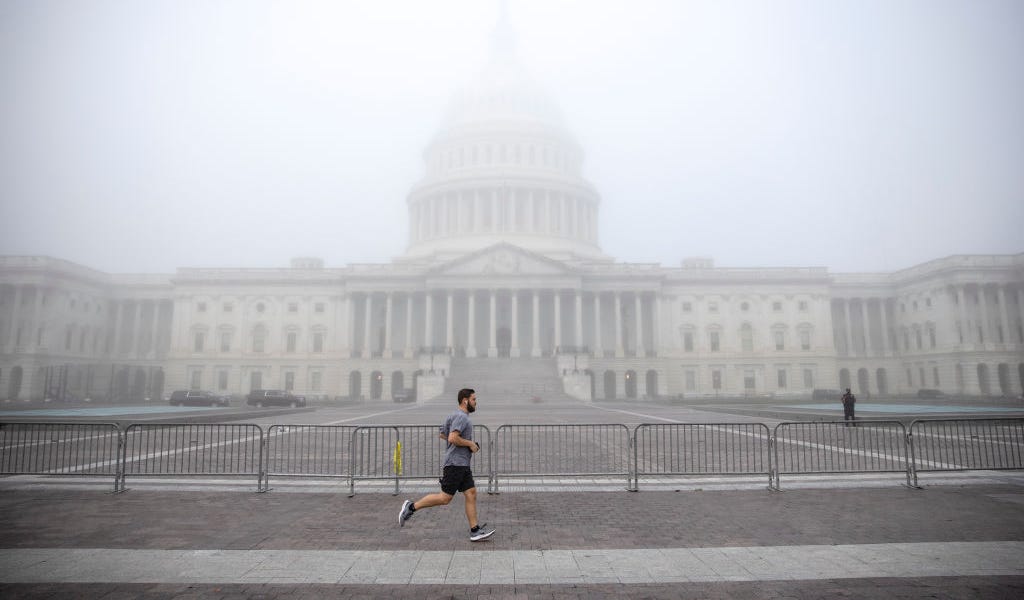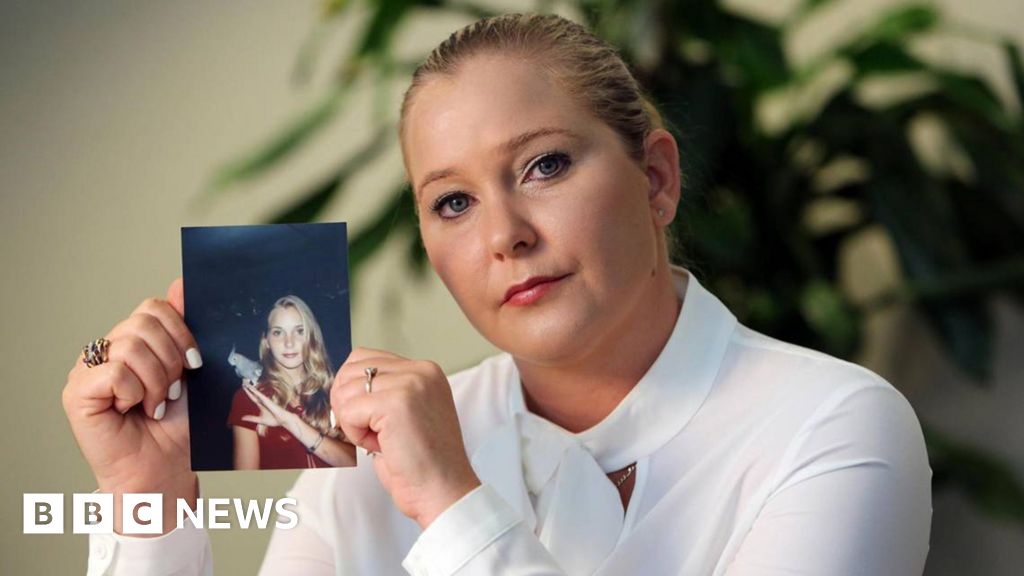Supreme Court Justice Amy Coney Barrett in a new memoir defends her vote reversing a half century of national abortion rights, declaring that Roe v. Wade usurped the will of the American people and “came at a cost.”
“(T)he Court’s role is to respect the choices that the people have agreed upon, not to tell them what they should agree to,” Barrett writes in “Listening to the Law,” set to be published on September 9.
CNN obtained access to Barrett’s memoir, in which the justice also takes on religious bias and details her decision-making process, revealing that her chambers once celebrated with champagne when other justices joined a “particularly tricky” opinion of hers.
Barrett, President Donald Trump’s third appointee to the high court, has emerged as a crucial justice on the nine-member bench, shaping the contours of oral arguments and often providing a key vote for the decision in a case.
Her 2020 appointment to the vacancy created by the death of liberal Justice Ruth Bader Ginsburg set in motion the 5-4 end of Roe v. Wade.
Barrett, 53, said she wrote the book to provide an accessible account of how the court operates. At the outset, she warns that she will reveal nothing of internal deliberations on specific cases, nor use the names of her seven children or other family members, for the sake of their privacy.
She also does not name the case that led to uncorking the champagne. Given the usual book publishing schedule, it is unlikely she was referring to her important opinion just two months ago siding with the Trump administration in its challenge to lower court judges who blocked a policy involving birthright citizenship.
She reportedly secured a $2 million advance for her book published on the conservative Sentinel imprint of Penguin Random House. Barrett declined requests from CNN for an interview.
Any work by Barrett is likely to be sought by people trying to understand an institution that could determine how fully Trump remakes America. So far, the conservative supermajority – which Barrett’s appointment sealed – has provided scant checks on his aggressive agenda.
Barrett refers only in passing to Trump, and she writes dispassionately that the court has always been entangled with its times.
“While the intensity of the challenges faced by the Court ebbs and flows, the challenges themselves will never disappear,” Barrett writes. “Throughout, the job of every justice is to do his or her best by the law.”
The pages that reveal some of Barrett’s most intense reflections involve the 2022 case in which a 5-4 majority fully reversed constitutional abortion rights, Dobbs v. Jackson Women’s Health Organization.
Barrett, who joined the majority opinion by Justice Samuel Alito, makes clear in the book that she believes the court had no business declaring abortion a constitutional right in the first place. (Two of the other justices in the majority wrote separate statements, but Barrett declined at the time.)
She picks up Alito’s line from Dobbs that Roe v. Wade amounted to an “exercise of raw judicial power.” She echoes his view for the majority that the court’s usual adherence to precedent could be rejected because Roe was wrongly decided.
Elaborating in her book, Barrett contends the right to end a pregnancy was never deeply rooted in US history as were other implicit constitutional rights: “The evidence does not show that the American people have traditionally considered the right to obtain an abortion so fundamental to liberty that it ‘goes without saying’ in the Constitution. In fact, the evidence cuts in the opposite direction. Abortion not only lacked long-standing protection in American law – it had long been forbidden.”
Barrett backs up her contention that the Supreme Court was “getting ahead of the American people,” in the 1973 Roe decision by citing the woman she succeeded on the bench: “Justice Ruth Bader Ginsburg, herself a supporter of abortion rights, observed nearly twenty years after Roe that the case may have ‘halted a political process that was moving in a reform direction,’ ‘prolonged divisiveness,’ and ‘deferred stable settlement of the issue.’”
Abortion opponents have often used pieces of a 1993 Ginsburg speech to support their cause. Alito similarly cited Ginsburg in the Dobbs opinion.
But Ginsburg, one of the court’s strongest believers in women’s equality and the right to end a pregnancy, said Roe’s result was correct, even as she held a nuanced assessment of how broadly the court swept and the constitutional grounding it chose.
In her book, Barrett dismisses the view of the three liberal Dobbs dissenters, who began their opinion by declaring – and citing Ginsburg – that for half a century the court’s abortion-rights precedent “protected the liberty and equality of women” and guaranteed “government could not control a woman’s body or the course of a woman’s life … .”
Barrett writes that the “complicated moral debate” about abortion distinguishes it from other rights more traditionally recognized as fundamental that enjoy broad public support, including “the rights to marry, have sex, procreate, use contraception.”
After the Dobbs ruling was issued in June 2022 and Barrett was on a family vacation, a brother-in-law arrived with a copy of the decision, saying he was following the justice’s mantra to “read the opinion.”
“Dobbs did not top the list of things I wanted to talk about on vacation,” Barrett writes, referring to court tensions on the case, an investigation over a leaked draft, security threats, and protests at her house.
Still, she says, she hugged him.
The Supreme Court often confounds people with its unwritten rules and opaque opinions. And while Barrett herself can be the decisive justice, she is also an enigmatic one, as seen in an August case that allowed the Trump administration to halt nearly $800 million in research grants at the National Institutes of Health.
Barrett acknowledges that she was once on the outside looking in – and frustrated.
“Before I joined the Court, I was sometimes frustrated by an opinion’s cryptic language or its failure to resolve fairly obvious points,” she writes in her book. “Now I better appreciate that glossing over issues is often deliberate.”
She says that if justices agree with the bottom-line judgment in a case but waver on some arguably ancillary issues, there’s good reason to narrow the opinion.
Yet, she can still be vexed: “Skirting issues is sometimes the price of finding common ground – though it’s frustrating to delete points I’d like to make.”
Five justices are needed for a majority. Barrett writes that when she has been assigned to write the opinion for the court, she works to hold onto the majority and even to gain spare votes.
Once Barrett’s draft opinion is circulated among the other justices, her law clerks watch for word of who will join it.
“The best days are when ‘join’ memos come in quickly and without requests for changes,” Barrett says, recounting, “Once, when other justices quickly joined a particularly tricky opinion of mine, my chambers celebrated with an impromptu bottle of champagne. More often, there are at least a few requested edits – some simple and others requiring significant work. The latter requests are not an occasion for champagne, because after the effort of producing the opinion, reworking it is painful.”
She addresses the court’s emergency docket, the process by which the justices hastily handle preliminary appeals, most recently from the Trump administration objecting to numerous lower court judgments. The conservative high court majority has so far chiefly favored the administration in those instances.
“As long as litigants continue filing emergency applications, the Court must continue deciding them,” Barrett writes, minimizing the justices’ control of the situation.
Yet she conceded that “the judicial system functions better” with the benefit of full briefing, oral arguments, and deliberation.
Religion and Feinstein’s ‘dogma’ question
Before her appointment to the Supreme Court, Barrett was a University of Notre Dame law professor and then judge on the 7th US Circuit Court of Appeals.
During her confirmation hearing for that post, in 2017, Democratic Sen. Dianne Feinstein focused on Barrett’s writings about her Roman Catholic faith, stating at one point, “the conclusion one draws is that the dogma lives loudly within you. And that’s of concern when you come to big issues that large numbers of people have fought for, for years in this country.”
Even fellow Democrats thought Feinstein, who has since died, had awkwardly raised the issue, and Barrett supporters believed she was being presented with a “religious test.”
In her book, Barrett writes, without naming Feinstein, “Some suggest that people of faith have a particularly difficult time following the law rather than their moral views. (I faced that criticism as a Catholic, most sharply when the Senate Judiciary Committee conducted a hearing to consider my nomination to the Seventh Circuit.) I’m not sure why.”
“Fortunately for the health of our country,” Barrett continues in the book, “people of faith are not the only Americans with firm convictions about right and wrong. Nonreligious judges also have deeply held moral commitments, which means that they too face conflicts between those commitments and the demands of the law.”
Relatedly, Barrett refers to her vote to reinstate the death penalty for Dzhokhar Tsarnaev, convicted in the 2013 Boston Marathon bombing, despite her personal resistance to capital punishment.
“For me, death penalty cases drive home the collision between the law and my personal beliefs. … Swearing to apply the law faithfully means deciding each case based on my best judgment about what the law is. If I decide a case based on my judgment about what the law should be, I’m cheating.”


